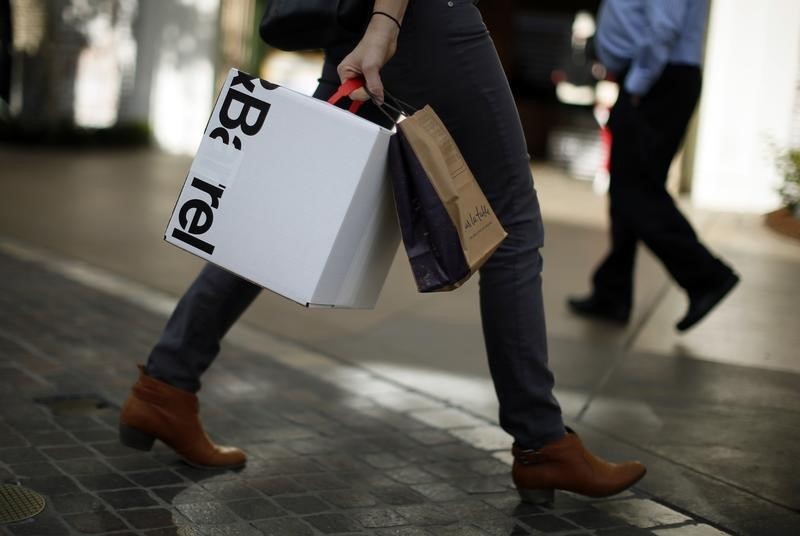(Bloomberg) -- Despite the unexpected jump in U.S. retail sales in May, the pandemic is changing consumer behavior in a way that threatens to widen the inequality gap, according to a report this month from the JPMorgan Chase (NYSE:JPM) Institute.
The institute’s analysis -- which relies on about 450 million monthly credit card transactions made by a rolling sample of 11 million customer accounts -- showed that Covid-19-related lockdowns increased consumer spending at non-local retailers.
“This is good news for consumers, who can get a larger variety of goods and services at lower cost,” said Marvin Ward Jr., the institute’s local commerce research lead. “However, it’s most likely to benefit those with higher-incomes, and local retail remains a lifeline for lower-income consumers.”
In May, national retail sales soared 17.7% from the prior month, the biggest jump on record and double forecasts. That followed a 14.7% drop in April, the largest monthly decline in nearly three decades of record-keeping, and an 8.3% decline in March, according to Commerce Department data released Tuesday.
Thousands of stores and restaurants reopened after lock-downs were lifted last month. Federal stimulus checks and tax refunds fueled a burst of spending.
Sales at clothing stores, gas stations, restaurants and bars were off from the comparable month a year ago. Meanwhile, online sales now take in more than 1 in every 6 dollars spent as dollars leave local economies.
“The longevity of these spending changes associated with the Covid-19 pandemic will determine how different communities and consumers fare in the new retail landscape,” said Ward. “The economic hardship we are currently experiencing will likely have a long tail because so many people have lost their jobs and so many businesses will not survive the fallout of the past few months.”
©2020 Bloomberg L.P.
